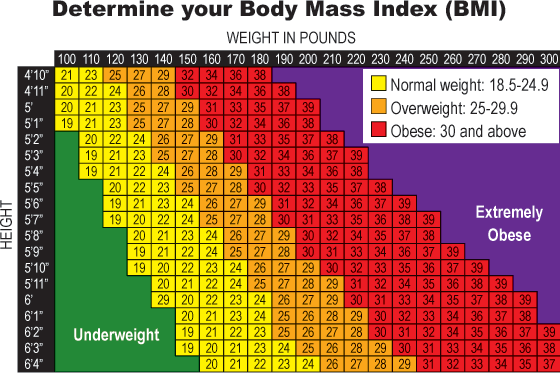To determine if your health
is threatened by your weight...
1. Determine your Body Mass Index (BMI) (click here)
2. Measure your waist circumference (click here)
3. Calculate your disease risk for type 2 diabetes, hypertension, and cardiovascular diseases (click here)

Although the Body Mass Index (BMI), a calculation based on height and weight, helps measure a person’s “desirable” weight, it is not always accurate. Athletic people with well-developed muscles often have a BMI higher than normal because muscle weighs more than fat. However, when combined with other measurements, such as waist size, the BMI is a helpful tool in determining whether a person should lose weight to reduce health risks.
Back to top
Measure your waist circumference
 Accumulation of weight around and above the waist (apple-shaped) rather than the hips and buttocks (pear-shaped) increases a person’s risk for cardiovascular disease.
Accumulation of weight around and above the waist (apple-shaped) rather than the hips and buttocks (pear-shaped) increases a person’s risk for cardiovascular disease.
Desirable Waist Measurements
Women: 35 inches or less
Men: 40 inches or less
Waist to Hip Ratio
Measure your waist and your hips. Divide your waist measurement by your hip measurement.
Women: 0.80 or below
Men: 0.90 or below
Calculate your waist to hip ratio click here
Back to top
Calculate your disease risk for type 2 diabetes, hypertension, and cardiovascular diseases
relative to your BMI and waist circumference.

